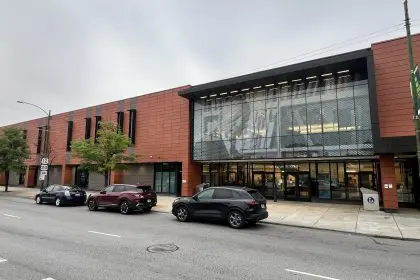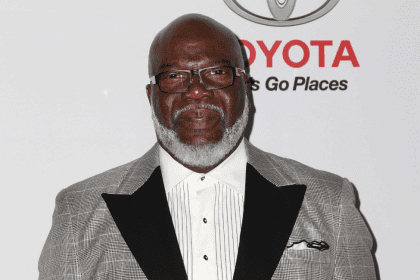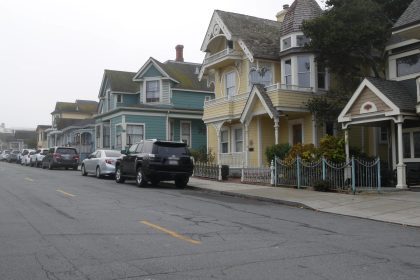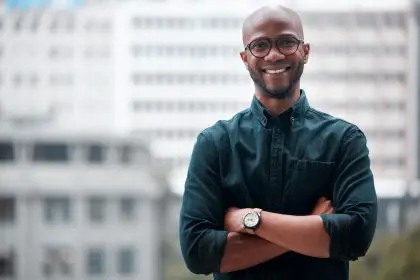James Smith was born in 1945 in Wilmington, N.C., and grew up in Castle Hayne. He attended all-Black public schools and graduated from Williston Senior High in 1964. Education and service were cornerstones of his upbringing, leading him to earn a BS in Engineering Physics from North Carolina A&T State University, an MBA from the University of Chicago, and a recent Certificate in Religious Studies from Atlanta Metropolitan State College.
Smith has held notable positions, including Infantry Officer in the U.S.Army, Account Manager at Motorola, Product Marketing Manager at Alcan Cable, and Power Systems Sales Engineer at Westinghouse Electric. He also served on the Roswell, Ga., City Council and worked at Clayton State University as an Adjunct Professor, Lecturer, and Interim MBA Director.
Now retired, Smith works part-time as an Office Administrator, continuing his commitment to education and service.
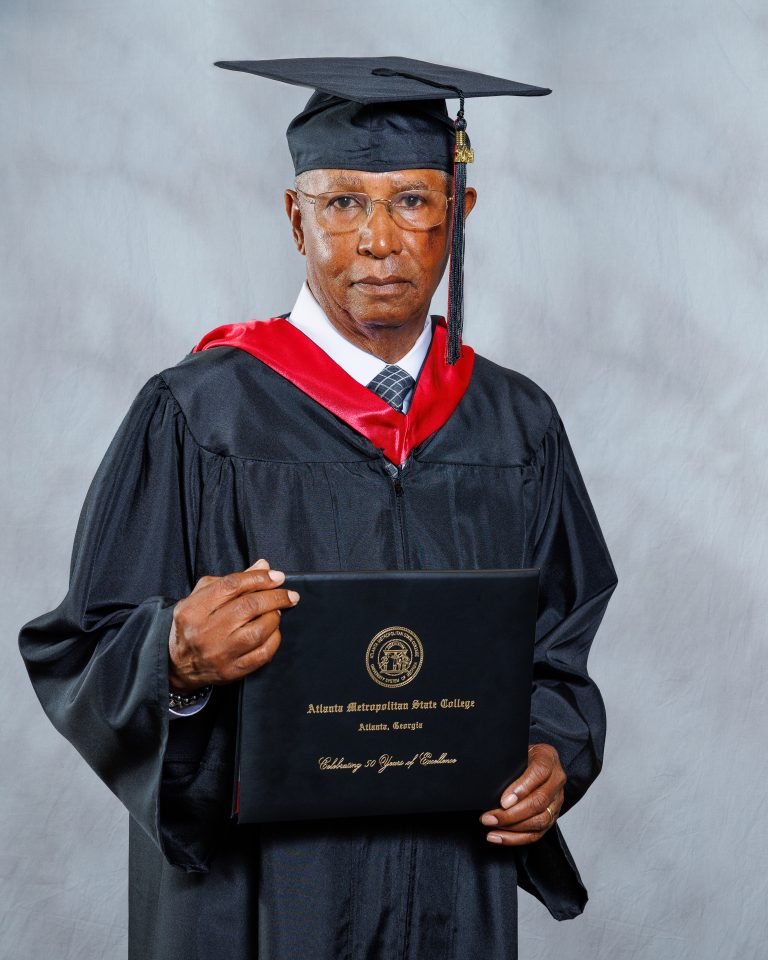
Munson Steed: Hey, everybody! This is Munson Steed, and we are on rolling out university, where education and elevation meet. I am so proud to have with me a true scholar, a gentleman, and one who can share with us the journey of continued and forever wanting to be a student in life, the one and the only Mr. James Smith. How are you today?
James Smith: I’m doing well, doing well. Thank you.
MS: If you had to share a value of why in life we should all be lifelong learners, what would you say? The value proposition is for our community to understand the value of that.
JS: I guess if I were to go back and start out, I almost have to look at my childhood. And at the time I grew up, the adults in particular saw education as that primary tool that was going to allow me as a black man to be able to move to the next step. My parents, again many of the older people constantly encourage this. You need to learn. Get all the education.
They drilled it into us, because they had pretty much bought into the concept that education was going to be that key. If I wanted to get out of the country, if I wanted to get off the farm, I needed to go have education, and so by instilling that in me as their primary tool. As the primary tool that was going to allow me to move, it became part of what I thought not was just important, but part of how I could actually move and and move my way through society.
MS: When it came time to pick a degree, and you were going to go to college, why and how did you pick your first degree, and subject to major in?
JS: Boy! I really wish I had a great profound answer to that. But in high school, I was good at science. I was very interested in science. Interesting thing, one of my advisors advised me that I should not major in mathematics and that I wouldn’t go ahead. I don’t know that. But I was interested in physics, science, and I had actually made the determination I was going to major in mechanical engineering. So, when I went to A&T, that was my thought. But during that summer, I read a book called, It was about Einstein, relativity.
There’s a good senior moment. Relativity and Mr. Einstein. Read through that and it was interesting to me that when I got to campus I actually ran into a young man I knew from a neighboring high school. We were talking, and I said, “Hey, what are you majoring in?” He said, “I’m going to major in physics.” I said, “I can think about that,” and on the spot changed my mind about mechanical engineering, and ended up majoring in physics. Spent five long, hard years late at night, beating my brains up against a wall. Wondering why I decided to do this?
But it was interesting. And then I’ll say one thing and one of the things I would say to young people, don’t be afraid to take the hard way. One of the things I’ve learned over the years starting with physics, and some of the other things is anyone could take the easy path. I mean, you can jump out of bed and do that. But if you want to make a difference. you want to try to see who you are, take the hard road. It’s all right.
You’re gonna run to some bunk. You’re gonna fail. But don’t be afraid of that. Go ahead and take the hard road, because once you get there nobody can take it from you. I don’t care what they say or what to do. No one can take my degree in engineering physics from me.
MS: So, you get one degree. You got a great physics degree. Why didn’t you stop and how and why did you choose your next degree?
JS: Okay. And again, the interesting thing about this, you’re gonna find out. None of this was like, Oh, inspirational. It started back from the time I got out of the country, out of the rural area I want to do. I kept trying to, I had to weave my way through society. I had no model, no one to model after. Okay, this is how you maneuver through the corporate world, through society other than when you’re in the area. So, a lot of it was experimental. But, okay, so what happened was, when I was in college I was interviewed and I was seriously thinking about finding work in physics. Although, I wasn’t that good because I didn’t know any difference.
But I had an interview with this company, Westinghouse, and the interviewer was late for my interview, and it burned me. I was mad. My assumption was that this big old company was coming down to this small HBCU black school at the time, and that they could be late for my interview. So, during the interview, the young man asked me, “You seem to be worked. What’s wrong?” I told him I said, “Look, I don’t appreciate you being late for my interview and if that’s representative of the company Westinghouse is, I just don’t want to be a part of it.”
Now, mind you, I had no other job interview or jobs. In about two weeks, I got a letter from Westinghouse offering me a job. The key was they were looking for Blacks to go into sales and this was again, car systems, industrial sales, big-dollar kinds of tickets. And they saw that in me, at least they assumed that I would stand up for whatever I feel, for whatever reason. They offered me the job in sales. I initially turned it down and said no, because at the time I didn’t know what professional salespeople did.
Only thing I knew about sales was the guy who came around bugging my mother about insurance. And because again no role models. They say, “Well look, we’ll hire you” because I had an army commitment that I had to fulfill. They say “We’ll hire you, anyway. When you go to the Army, do your research and determine, and when you come back we’ll go with it that way.” So, it gave me a couple of years while I was in the Army, to sort of understand industrial sales marketing, those kinds of things. I got back and the rest is history.
I did go into sales. I was the second African American to be hired as Empire system sales for them, and of course, the first from a HBCU. So, and what they do. They generally hire engineering types for their salespeople, and then they encourage you to go to grad school to get an MBA, to get the marketing part of it. So, I was in Chicago, applied to Northwestern and Chicago. Northwestern did not accept me. That’s just one of those things that’s always on my side.
Chicago did and then another three tough years. But, as I was saying again, the hard road at that time Chicago was either always one or two with Harvard on the top MBA program. And, as I said about the degree in engineering physics. Something you can never take away from you. I got it. There is again, if there is a hard road, never be afraid to take it.
MS: How did you acquire role models, given you were from which town and all of a sudden you found yourself in the third-largest city in the country?
JS: That’s a tough question. I tell you, I had to go back to and actually [find] the role models. I had to go back to people like my father, my grandfather in particular, really my grandfather as a male role model. My mother played a strong part because she was the pusher of education. She was the one who said that education is the way. So she would drill. But the men, again, and father, my grandfather. Particularly when it came to how to maneuver your way in this environment, where again I don’t know. I didn’t know about corporate culture. I didn’t know what to do. I didn’t know how to succeed. I made a mistake, but I thought about my grandfather.
My grandfather, he was a farmer but all the years he actually became a painter, and one of the things I always inspired about him. He was always a professional, no matter what he did. He would actually go to paint houses, and when he was gonna go paint houses, he would wear a shirt and tie. He was always a professional and many of the men that I thought about or knew in those days, even when I think about my father who worked on a farm. It was always how to do your best. It doesn’t matter the job. How do you do your best?
How do you extract all of the qualities that God has put into you, to be the best at whatever you are doing? And despite all of the ups and downs, the mistakes, the bumbles, the running into walls, ultimately, what I had to rely on was what I learned back in the country of North Carolina and a lot of what I learned from those men. And one of the things about that is one of the differences, I believe. And I did a lot of thinking about this, in the environment I came up in and and and some of the challenges of the young people doing. Let me just say, anytime I see a young person get through today I applaud them. Because it is hard.
When I was moving through high school, going to college or something. I got a lot of support from the community. It was as if the community was [saying], “You represent us.” I mean from the preacher, to the widow. Everyone, [was saying] “Boy, you gotta be something, boy you got.” And so there was a communal support that I carry with me. And one of the things that I worry about with the young people today, not only that communal support, but just trying to understand how to find the targets to shoot at.
I mentioned that many of the people saw education as that tool for me to move over, to get to the next. We could identify some of the targets. For instance, we could identify racism, and we could identify some of the things. It is much harder to identify those things, and actually to be able to quantify or, okay, how does education in itself get me to the next level? And it’s so much and with the distraction. So anytime I see a young person move through today. I want to do cartwheels for them, because it is extremely challenging, and every time we get through, we have to applaud.
MS: Bringing that you decide to go back to school: You got a masters. You’ve graduated from an HBCU. And then, all of a sudden, Atlanta Metropolitan. You decide you want to show back up and be a student again and post getting social security. What motivates you to want to continue to be a lifelong learner and how’d you pick this degree?
JS: I guess you say there’s a back story of everything, and I think that first of all. Remember, I taught college for 12 years in between this. I love college campuses. I mean, I just love the excitement of being around campuses. Now, for one other thing, I had an aunt, one of my mother’s youngest sisters. She passed away a couple of years ago at 97, and she was a lifelong learner. At 95, 93, 95 that age, she was still going out renting cars. She sent more emails than you can count on.
So that was a role model for me to think about. Okay, this learning thing is just something you get to, and you stop. But, obviously, I’m a Christian. But I want to just like anything else. I mean, I wanted to understand more than just the part you get when you go to church. And I wanna say, what happened between the Biblical times and today? You go to church and folks, oh, you know, we got a lot about. So, there was always that curiosity on what happened. How does that play into life decisions today? As a matter of fact, I believe one of the challenges with churches today would be. How do we make all of this make it relevant in our decision-making process?
So if I’m talking to someone, how can I say this is relevant? So, in order for me to truly understand that, one of the things I wanted to know was a little bit about history. How do religions actually tie in to human beings? How does it actually play? And obviously, it always plays a role with mankind. I wouldn’t say religion, it is really spirituality, in a sense. So I was extremely curious about what that role was and in particular, that’s how I sort of how I narrowed in on. Huh! That is something that I can, we can work on. But that same kind of curiosity sort of children.
MS: For everybody who doesn’t know, what degree did you secure or what certificate did you secure this time?
JS: It was religious studies.
MS: So, you go from selling utilities, get an MBA to spiritual studies to continue the journey after being a professor and don’t need another degree, but you wanted to challenge yourself. Last question: How have you learned through your experience to begin to read the room? How important is it for young people and old people to be able to understand the power of reading the room?
JS: Great question, as a matter of fact, that’s probably one of the notes, when I think about things, I would like to say to young people. Again, I guess we’re in the society today where we think more about transaction interaction. I’m of that school of thought that relationships are things that you want to build. The difference is, the way I see it. My way, I would explain, in relationships, or let’s start with transactions. You tend to want to make sure that you’re whole first and the other person, if they’re whole, that’s all well and good. But that’s not your biggest concern.
With relationships, it’s somewhat the opposite. You want to make sure that the other person is whole, and you’re going to be okay with it. Now, in order to do that, you have to not be afraid to be vulnerable. This actually goes back to how I think about education. One of the reasons you want to continue to educate yourself. Maybe learn, maybe a better word, rather, phrase. But you want to continue that process of acquiring information, knowledge. Because it allows you not to be afraid to be vulnerable.
And if you can have that kind of courage, then you can concentrate, or intentionally build, or try to build relationships. Because you can give and you are willing to give, to make sure others are whole. And this goes back to actually walking into the room, there’s a tendency, I think, in our society now to say, when you go into the room, you want to stand out. You want to make sure everyone. I believe there’s value in the reverse. Going to the room and not necessarily. You don’t have to go and say, Hey, I’m the smartest person in the room. Even if you are, in fact, the smartest person in the room. Eventually, the room will find out.
What you really want to go in. What I like to do is go into a room. I would like to find out who the smartest person, or whoever I can learn from. My first thought getting in is, I don’t need to say anything or talk too much. I need to listen first. I need to find out what’s going on, and then eventually I can find the smartest person in the room. I can find the person that I can learn something from, because that’s the person that I want to most associate with. The one that I can actually learn from as well.
Now, I’m willing to devote myself to relationships because I can give whatever I have. I’m not worried that, Oh, now this person, I’m not gonna come out on top. And again, because I have this fundamental belief or understand that if I do my best. if I do my best. If I prepare myself, I do my best. You beat me. I’m happy for you, because we’ve both been elevated. If I force you to do your best, we’re both elevated. So, I don’t worry if you outdo me at my best and that’s where we want to go. And so, in order for me to develop this, I’ve got to always, every morning I wake up, I got to say, How can I improve? I got to be better. I got to be better, not to compete necessarily, but so that I can be a better servant.
One of my favorite stories from the Bible is the Good Samaritan. And the part that I think we often forget we don’t talk about or understand is, in order for the Good Samaritan to have been the Good Samaritan, he had to have the resources. And so, in order to be able to do good things and to be a good servant, you have to have those things to do good.
God gives you enough stuff, but you’ve got to be willing to give it. I think that’s sometimes where we start falling short, but then they sort of get back to reading the room. When you go into the room you can be quiet, listen, make sure your ears are up because you want to know the character of the room. And if you identify someone who is smart or I don’t know the right term, that’s who you want to communicate with.
MS: Well, I wanna thank you, Good Samaritan. Job well done, motivating, and then thank you for your continued gift and insight here at rolling out university, where we give insight and hopefully elevation to understanding the value of being a lifelong learner. I’ve had the pleasure of interviewing Mr. James Smith, but being inspired to be a lifelong learner and a true giver of our talents and times. I’m Munson Steed for rolling out university with Mr. James extraordinaire, intellectual, and a man of faith, James Smith. Thank you so much, Mr. Smith.
JS: Thank you so much. I’m humbled that you would even consider me. I am really, truly, thank you.
MS: Thank you.




